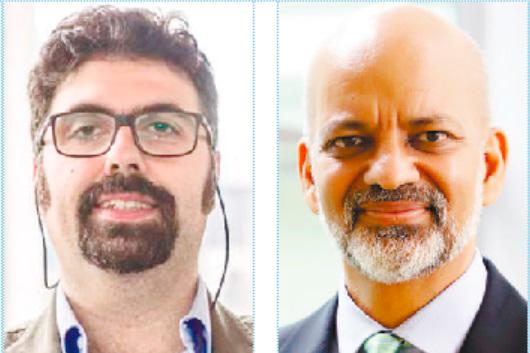PETALING JAYA: Government indecision and a lack of commitment to market-friendly reforms will cause the ringgit to decline further, said Center for Market Education CEO and Institute for Democracy and Economic Affairs Kuala Lumpur senior fellow Carmelo Ferlito.
Ferlito urged the government to be more decisive on the implementation of market reforms and to implement those reforms that have been announced.
“(For example) the more friendly Malaysia My Second Home policy, a more liberal labour policy and rationalisation of subsidies, all these things have been announced but we have not seen the implementation. So the government needs to speed up on the implementation of a pro-market agenda,” he said.
Second, he proposed initiating discussions at Asean level to establish a system of free competition among currencies within the region.
“This means that citizens in Asean should have the possibilities to choose which currency among the Asean currencies they can use for their daily transactions,” he explained.
Ferlito said that this will create an incentive for both governments and central banks to have a strong currency, so to have responsible fiscal policies and monetary policies because citizens will choose to keep with them the currency that gives them the higher confidence of strength in the long run rather than using a weak currency that makes them poorer in the medium and long run.
“I know this is an ambitious project, it was first represented by Nobel laureate Friedrich Hayek in 1976 in a book called The Nationalisation of Money. I think it’s something we should start discussing at international level because so far I think we have exhausted the bullets that we had available with the conventional wisdom. We need to go beyond the conventional wisdom and think out of the box,” he added.
Meanwhile, World Bank lead economist for Malaysia Apurva Sanghi said the ringgit suffers mostly from long-term decline in the country’s competitiveness.
“If you take care of this – which policymakers are attempting to do – the ringgit will take care of itself,” he said on X (formerly known as Twitter).
He said the ringgit was stronger than Thailand’s baht and South Korea’s won in the immediate aftermath of the 1997-98 Asian Financial Crisis (AFC). However, this is no longer the case.
Apurva said Thailand and South Korea were two countries that arguably implemented the most reforms after the AFC. They opted for short-term pain for long-term gain, unlike Malaysia, he said.
“Malaysia’s investment-to-gross domestic product (GDP) ratio has been trending downwards since the AFC. Malaysia’s last fiscal surplus was pre-AFC. Exports as a percentage of GDP have shrunk from 120% in 1999 to 68% in 2023, and the 1MDB shock has also severely dented the ringgit,” he said.
Ultimately, he said, a currency reflects a nation’s societal, economic and political vibrancy.









